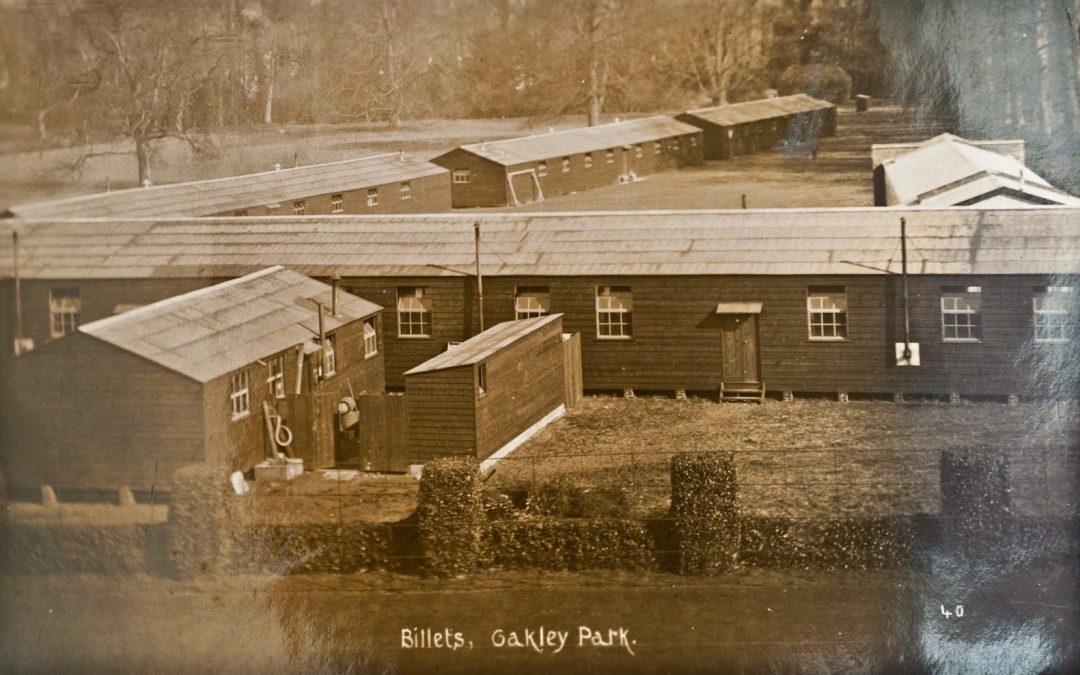
by Suzey | Oct 25, 2014 | Remembrance, Uncategorised
On the 24th of October we remember Walter Sandall of Rippingale.
Born in 1893, Walter was one of nine children born to Edward John Sandall and his wife Mary Pridmore.
In 1911 Walter was working as a horseman on a farm in Scredington and was living with The Whotton family.
Before the war Walter had served with the 1st Battalion Lincolnshire Regiment and had bought himself out of service.
He was living back in Rippingale when in October 1914 he re-joined the Army, this time with the Lincolnshire Yeomanry.
The Yeomanry were a cavalry unit who were based at the barracks at Lincoln and were essentially a forerunner of the Territorial Force before the war. The four squadrons of the Yeomanry were based in the Grimsby, Brigg, Lincoln and Stamford/Bourne and Men were recruited locally, In the Bourne Area their patron was the Earl of Ancestor.
Several other local farmers joined the Lincolnshire Yeomanry including Leonard Miller, Everitt Cook, Edward Franks and George Jessop. In most cases the soldiers took their own horse from civilian life into service with them.
Walter carried out his training and home service, first at Oakley Barracks and then at Lowestoft and Sprowston. His training was not without incidents which had landed him in trouble with his seniors.
The 1st Lincolnshire Yeomanry Embarked in Southampton on 27th October 1915 for Salonika and war in the Dardanelles. During the voyage the destination was changed due to a threat by the Turks on the Suez Canal. After leaving Gibraltar the Mercian was attacked by U38 who out of torpedoes attacked with its guns. In the ensuing battle the Mercian returned fire with what little it had and U38 dived. Following putting into port at Oran, Algeria, to bury the dead and transfer the wounded to a military hospital, the Mercian went to Malta where it was fitted with a 3″ quick firing gun. From Malta the Mercian and the Yeomanry eventually disembarked in Alexandria on 21st November 1915
The Lincolnshire Yeomanry saw action across the middle east for the whole of the war, including Egypt, Palestine and also the battle of Gaza.
In February 1917 the Yeomanry was disbanded with most of the men becoming part of the Machine Gun Corps and Walter was transferred to the 18th Squadron of the Corps on 27th February 1917.
Walter Died on Pneumonia on 24th October 1918 and is buried in Beirut Military Cemetery.
In Memory of Private Walter Sandall, 95973, 18th Squadron Machine Gun Corps (Cavalry) who died on 24 October 1918.
Remembered with Honour Beirut War Cemetery
Grave Ref: Bay 3 and 4
Walter was one of seven cousins from our villages who did not return home at the end of the war, a generation missing for their family.
Walter is also remembered on the Rippingale war memorial.
http://www.jamieandsue.co.uk/?page_id=828
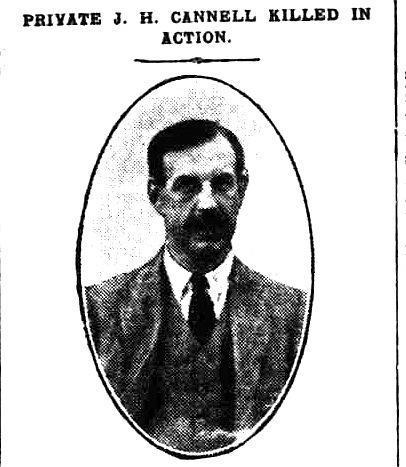
by James | Sep 14, 2014 | Remembrance
Our second remembrance today is for John Henry Cannell who was killed on this day 100 years ago on the 14th September 1914.
John Cannell was born in Norfolk and after earlier military service returned to civilian life although remained an Army Reservist. He was called back to his regiment, The Duke of Cornwall’s Light Infantry at the outbreak of the war.
John had been working as a chauffeur for Alderman Dean of Dowsby Hall when he was recalled for service.
He was killed in action trying to stop the invading enemy forces from reaching Paris, an action which helped to hold then at the Marne river thus starting the trench warfare phase of the war.
Grantham Journal :
Our Dowsby correspondant writes :- Ours is the sorrowful duty this week to chronicle the death of one of our most esteemed and loyal inhabitants. We refer to Private J H Cannell, who was killed in action at the front on the 14th September; the exact place is at present unknown. He belonged to the Duke of Cornwall’s Light infantry, his number was 7583. The notification of his decease was only received here on Friday evening week, when it came from headquarters, and when the news became known it caused quite a gloom to be spread, not only in this village, but in all who knew him, for he possessed a most amiable disposition, and had a kind word for everyone.
Steady, upright and fearless in dealing with mankind, he will be much missed by all his acquaintances. He was among the foremost to leave this district in the early stages of the present war, and now his name is numbered with other heroes in the roll of honour who have sacrificed all for their country and the freedom of Europe. Who could wish for a better epitaph?
It is hard for us to realize that we have lost him, but it is not for us to murmur, we shall remember him as a patriotic Britisher, and one who set an example which ought to shame all able-bodied single young men, for he was willing at the call of duty to leave his wife and child, a happy home, and all who loved him dearly, to find his rest in a grave of honour within a foreign land. A fine type of soldier he was, always ready to fulfill his duties faithfully, and when he received the “call to advance” to a far more glorious life, we fell he sure he did not falter. His age was 31 years, and he leaves a young widow and a daughter just over a year old to mourn their loss, and all hearts will extend them their sympathy in the hour of their deep sorrow. The poignancy of it all is that in a few months his time would have expired in the Army, for he joined twelve years ago. He had been in the employ of Alderman A.W. Dean J.P., of Dowsby Hall, as chauffeur, and his services in that capacity were valued, his parents reside at Careby, near Stamford. He was an attendant at our Parish Church and on Sunday, at both services the Rev. Gordon MacMorran, Rector, made feeling references to the deceased. In the morning, he preached from the text, St. Luke xii, 34, “For where your treasure is there will your heart be also,” and at evensong he delivered a most eloquent sermon from St. John xi, part of the 28th verse, “The master is come, and calleth for thee.”
There was scarcely a dry eye in the congregation. Special hymns were sung, and the services throughout were of the most impressive and reverent character.
John Cannell is remembered on the Dowsby Memorial and on the memorial at Le Ferte-Sous-Jouarre, France.
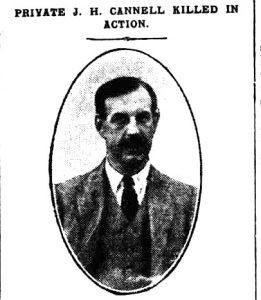
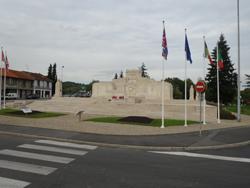
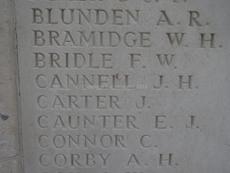
by James | Aug 24, 2014 | Remembrance, Uncategorised
In our preparations for the recent Morton Exhibition for the 100th anniversary of WW1 we compiled a book for each soldier that died from the 5 surrounding parishes.
The interesting thing about the Wyer Family is that so many cousins fought and died.
Sandall
and Wyer Cousins who served in the Great War
Loosing a child or a Grandchild in today’s world is devastating and so
we can only imagine the grief that local brothers felt when they lost 7
Children between them in the Great War.
The newspaper cuttings tell us that villages are proud that their sons
have enlisted, but secretly we can assume that parents and relatives are
fearful for their loved ones, some of whom are still quite young.
Brothers William Wyer, Thomas Wyer, George Sandall and Edward Sandall
waved off their offspring not knowing when they would see them again.
Of the 9 cousins that enlisted from Kirkby Underwood, Hacconby and
Rippingale, only 2 would return and one of them quite badly injured.
Frederick Stanley Wyer would spend the rest of the war wearing his
Silver Badge showing that he had fought, done his bit but was now disabled and
unfit for war due to wounds he received.
He lost one brother (John Thomas Wyer) and six cousins in the fighting during
the “War to End All Wars”
Robert Wilson Wyer Died
on the Somme 3rd July 1916
William Wyer Died on the Somme 14th
July 1916
Edmund Wyer Died on the Ypres Salient 4th
October 1917
Harry Sandall Died
near Arras 14th May 1917
John William Sandall Died
near Arras 22nd March 1918
Walter Sandall Died near Beiruit 24th October 1918
John Thomas Wyer Died
near Ploegsteert 13th April 1918
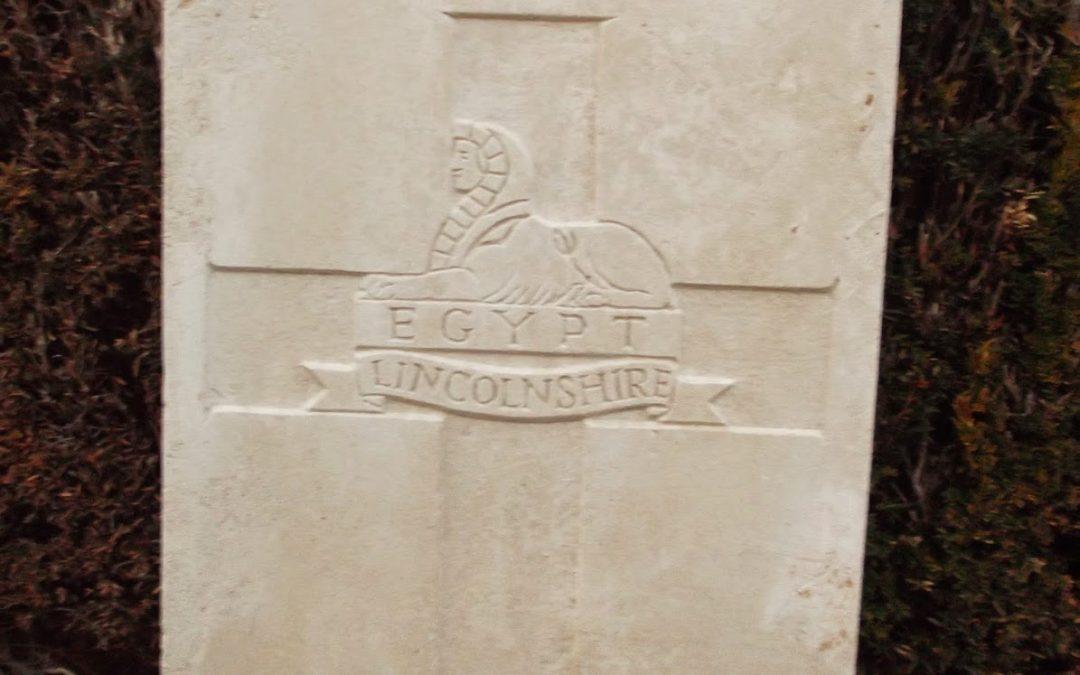
by James | Aug 24, 2014 | Remembrance
Today we remember Sgt Arthur Bates of the 1st Battalion Lincolnshire regiment. A regular soldier before the Great War, he had seen action in South Africa and more recently in India before returning home and placed in depot reserve at Lincoln.
Rejoining his battalion when war was declared on the 4th August, Arthur and the 1st Battalion were mobilised to France and on the 24th August were involved in a rearguard action during the allied retreat.
Sgt Arthur Bates was killed in action whilst a brave few men of the Lincolnshire regiment held an orchard in Fromelles in front of the advancing German Army.
Arthur was the first Morton man to be killed in the Great War and as well as his grave in the communal cemetery in Fromelles, is remembered on both the Morton and Bourne war memorials.
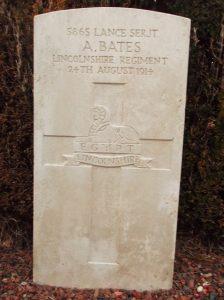
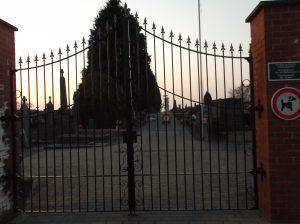
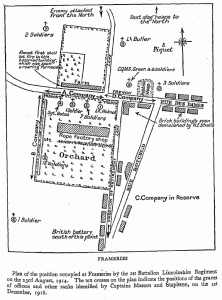

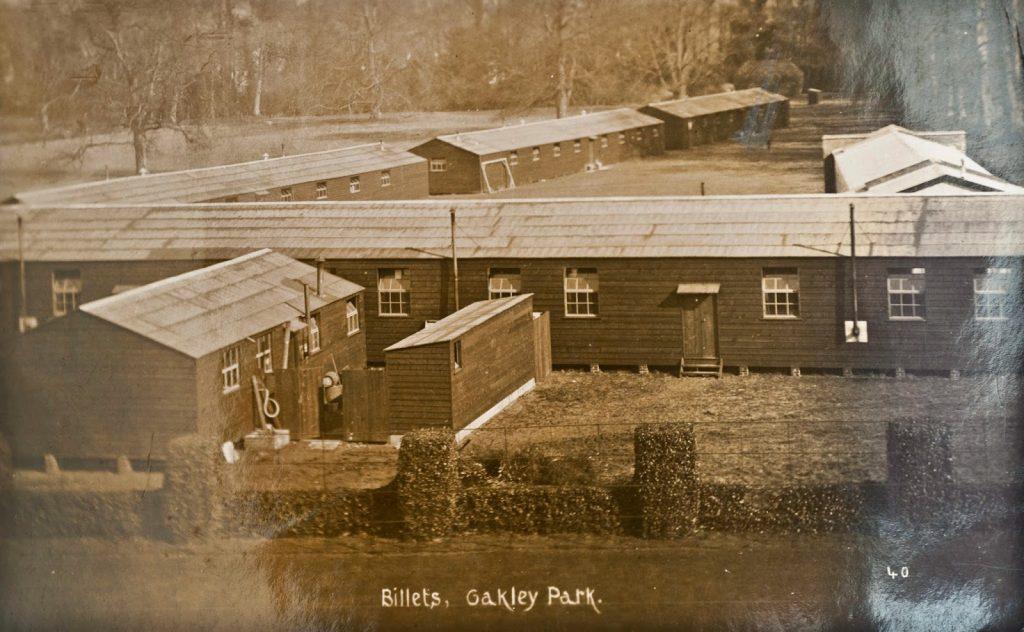








Recent Comments